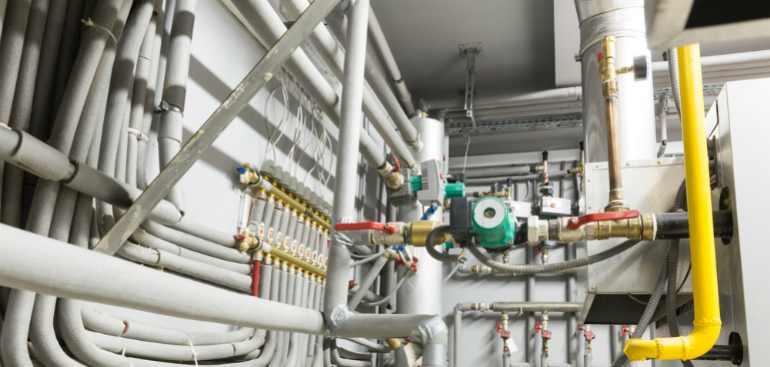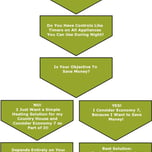Answer these simple questions and we will find you the BEST prices
Which type of solar quotes do you need?
It only takes 30 seconds
100% free with no obligation

Get up to 4 quotes by filling in only 1 quick form

Install a heat pump for less with the BUS grant

We’ve helped over 500,000 homeowners reduce their carbon footprint
- GreenMatch
- Heating
- Central Heating Pump
Central Heating Pump
What Is a Central Heating Pump?
Those who own a house or a cottage and are using a central heating system to warm up their properties, might have experienced the problem of uneven heating - when some rooms are hotter or colder than the other. In order to make sure that one sets the central heating system in a way that will ensure a proper heat distribution throughout the house, two things are important to keep in mind:
The second option is the one that is most widely employed by many homeowners. It requires less financial and working hours investment in refitting the layout of the central heating system for achieving the desired level of hot water circulation.
Among other things, the installation of a circulation pump is times faster compared to a full-fledged modernisation of the central heating system. By installing a central heating pump, one can achieve the following outcomes:
In order to make sure that the pump you get matches the central heating system parameters, you should keep in mind that calculating your heating expenses and needs plays a major role when selecting the circulation pump that will deliver the best value for your money.
For this reason, it is highly recommended to get in contact with a professional in the field. Comparing quotes from different installers can help you make a knowledgeable decision and ensure you get the best deal. At GreenMatch, we understand the importance of finding the right heat pump for your home and we're here to simplify the process for you by offering up to 3 free and voluntary quotes by simply clicking the form below.
- Quotes from local engineers
- Payment by finance available
- Save £7,500 with BUS grant
It only takes 30 seconds




Calculating the Pump's Required Power
The central heating pump performance depends on the following factors:
In order to calculate the coolant’s heat transfer value, it would be necessary to use the following equation (formula): P=Q, where P indicates the boiler’s flow rate per unit of time, and Q is the value which indicates the heating system’s fluid power. Therefore, it becomes clear that a radiator with a heating output of 10kW is capable of letting through 10 litres of hot water (coolant) per one minute of the central heating system operation.
Important to remember: It is important to take into account the central heating pipes diameter since this value directly impacts upon the speed with which the system’s fluid is pushed through. On average, the system’s standard flow rate should be in the range of 1.5m/s (when the central heating system is turned on).
It should be noted that the central heating pump’s power indicators are directly proportional to the length of the pipeline.
Central Heating Pump Types
Currently, there are two types of pumping equipment available on the market, that are used for pressurising the central heating network of pipes and subsequently, ensuring a proper water circulation within the system.
Experts note that for high rise apartment buildings the rotor type pump will be best, as this kind of equipment is designed for high-pressure pumping capacity. The second option - the submersible one, is optimal for low profile buildings, like private houses, since it will ensure an efficient water circulation, while in direct contact with the water.
Important to remember: Running a rotor turns out to be a noisy experience, so it is a bad idea to install it in a house, as it will create a persistent discomfort for the homeowner. Instead, these types of pumps are mostly installed in the basements of high rise buildings, that have proper sound insulation.
The growing popularity of submersible pumps in the private house sector is subject to their low-noise operation and to less frequent maintenance works compared to rotors.
Get Quotes on Heating Devices!
If you have decided to purchase a boiler or a heat pump but you are not sure which type you would like, we are ready to help you. Fill out the form on this page with your personal preferences and information, and we will provide you with up to 3 quotes from our network of trusted suppliers of boilers/heat pumps. You are free to choose the offer that best suits your needs. The service is free, without obligation, and takes only a few minutes.
- Quotes from local engineers
- Payment by finance available
- Save £7,500 with BUS grant
It only takes 30 seconds



We strive to connect our customers with the right product and supplier. Would you like to be part of GreenMatch?




